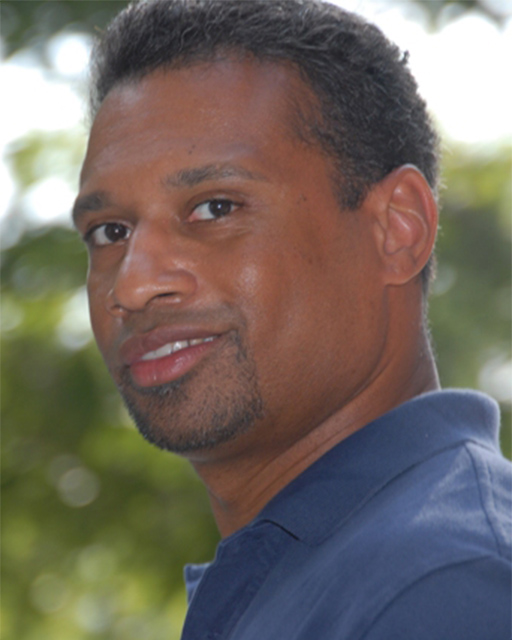By Allen M. Price
I’m finally living inside my Black body. For years my body was a Black Southern Baptist church into which white supremacists smashed the windows, spray painted racist slurs, burned crosses on the lawn, and bombed. I hid in the crypt with leaky pipes, crumbling walls, and shoddy electricity.
I visit the elementary school I went to in the neighborhood where I grew up and take walks with my friend around the building. Our friendship is one of motion. We like it like this—our shoulders bumping, facing out. It’s us against the world. I haven’t been back since 1991 despite living the next town over. As we walk I recall my sixth-grade teacher created a running program for us to run laps around the building. Two-hundred laps got a runner a t-shirt; each additional fifty laps earned a runner a green bar on the sleeve. Running was how I escaped my friend.
My friend was enslaved so long ago. My friend knew the enslaver. The enslaver invaded my friend’s home. The enslaver befriended my friend. The enslaver enslaved my friend’s family, fed them, clothed them, had sex with some of them, and gave them new homes after enslaving them. My friend tells me: the enslaver said it was for our own good and in the Bible: Genesis 9, verse 27.
These are things my friend and I talk about when there’s a news story about another Negro killed in America for no other reason than their Blackness. This’s the reason I no longer live in that desecrated building.
My friend knows this about me. My friend knows about my enslavement, which happened to me at six, in the first grade, by a white boy in my class. It’s something I remember like my favorite novel, Beloved. His words were racist: “My parents told me I’m not allowed to play with niggers.” Pressing me down. Where all I could do was move so far inside myself I was no longer touching my own skin. I cried and fled from my Black body, from my Blackness.
Because he was a white. Because I’m Black. Because his parents said that that was how they were raising their children. Because all the school could do was keep us apart for the rest of the year. Because, because, because. Because I’m nothing but a body with a voice, no mind.
When we stop walking, I say to my friend, it’s good to see you. My friend replies, it’s good to be seen. I tell my friend that occasionally I look at my Blackness and I wonder how it got this way. Occasionally I stare at my body in the mirror and what stares back is ever darker. The bronze hue turned charcoal color. Occasionally I struggle to love this Black body I inhabit. Really, my friend says—my friend’s voice so soft I lean in to hear—the hardest part is learning to live in a body after it’s been enslaved.

Allen M. Price
“I wrote this story after coming to terms with denying my Blackness for so many years. It took the murder of George Floyd in 2020 for me to love my Blackness. I want this story to show the two sides, the duel consciousness Black folk deal with daily. I am so grateful to the Blue Earth Review editors choosing my story and giving it a voice that is needed in our country right now.”
Allen M. Price won the 2022 Harpur Palate Award for Creative Nonfiction, and the 2021 Columbia Journal Winter Contest (chosen by Pamela Sneed). He was a 2022 two-time Pushcart Prize nominee by upstreet and Zone 3. His work appears or is forthcoming in Post Road, North American Review, Sweet, The Masters Review, Terrain.org, Shenandoah, Hobart, Transition, Juked, River Teeth, The Fourth River, Bayou, Sou’wester, The Saturday Evening Post, Louisville Review, Hawai’i Review, among others.
This work is copyright © 2022 by the respective author and remains their sole property. No part of this page may be copied or reproduced without consent of the author.